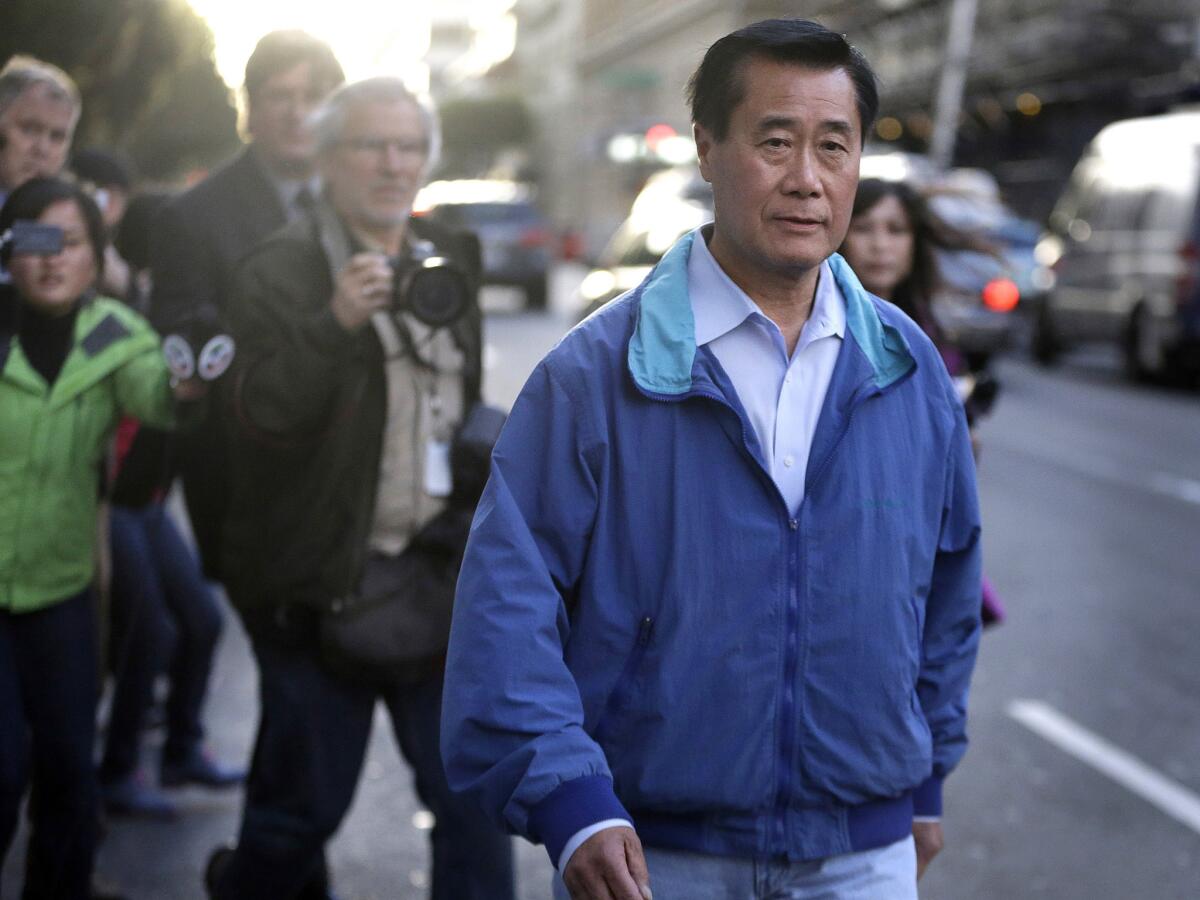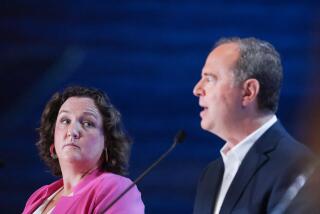Prosecutors must prove Yee knew money was pay for official acts

SAN FRANCISCO — Legal analysts said Thursday that the public corruption charges against Sen. Leland Yee — the most serious counts the state lawmaker faces — are more complicated to prove when the alleged bribe involves campaign contributions.
Yee also was charged with conspiracy to traffic in firearms, which carries a maximum five-year sentence. But the bulk of the charges against the San Francisco state senator involved public corruption.
Yee faces six counts of scheming to deprive citizens of honest services, each carrying a maximum term of 20 years in prison and a $250,000 fine. Those charges require federal prosecutors to prove bribery, extortion or kickbacks with the use of a wire, such as a telephone or bank transfer.
The federal complaint alleges that Yee accepted tens of thousands of dollars in campaign contributions in exchange for political favors.
“Campaign contribution cases are the trickiest,” said Dennis Riordan, one of San Francisco’s top appellate criminal defense lawyers.
The Supreme Court has ruled that “people are entitled to donate to candidates to influence their actions and candidates are entitled to take into account the desires of their campaign donors when they vote,” Riordan said.
Because of that rule, federal prosecutors will have to prove that Yee understood the money he received was payment for official acts, Riordan said.
“You have to prove mental state, prove that was what the public official was thinking,” Riordan said.
The complaint against Yee said he repeatedly objected when undercover agents suggested the money represented “pay for play” transactions.
“I have never seen a case in which a complaint of public corruption conceded there were exculpatory statements of that kind,” Riordan said.
UC Hastings law professor Rory Little, a former federal prosecutor, said prosecutors probably included the exculpatory statements “to avoid any accusation later” that they were hiding them.
Public officials can give others access in return for a contribution but may not do an official act in exchange for money, Little said.
“We do allow politicians to solicit money so just asking for money and taking money is not a crime,” Little said. “You have to connect it as a quid pro quo, and that is often hard because politicians are smart enough not to say it aloud.”
Still, Little said, wiretaps are strong evidence that permit jurors to hear inflections in tone that reflect intent.
“That is the best evidence you can get,” Little said. “Wiretap evidence is sort of a confession.”
He called the investigation “unprecedented in scope and in terms of agency resources and personnel” in the Northern District, covering four years, at least four undercover FBI agents and more than $200,000 given to targets to try to ensnare them. Little said the prosecutors certainly would try to seize the assets of the targets.
Stephen Juris, a white collar criminal defense lawyer in New York, said there were “plenty of cases” of convictions for honest services fraud involving campaign contributions, and the evidence will determine the obstacles prosecutors face.
“The question is, was there intent and was there a quid pro quo,” Juris said. “It will depend on the case, whether it hard or easy to prove.”
ALSO:
State Sen. Leland Yee drops out of race for secretary of state
Senate GOP leader submits resolution to suspend state Sen. Yee
Yee accused of introducing undercover FBI agent to other lawmakers
Twitter: @mauradolan
More to Read
Start your day right
Sign up for Essential California for news, features and recommendations from the L.A. Times and beyond in your inbox six days a week.
You may occasionally receive promotional content from the Los Angeles Times.







